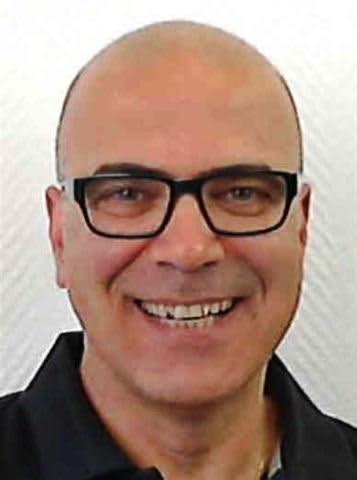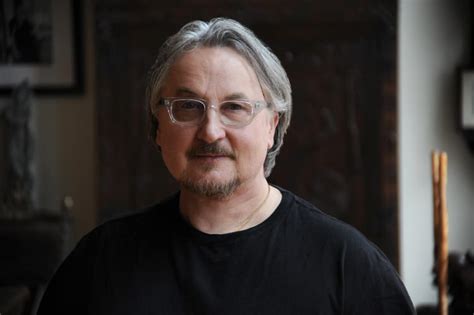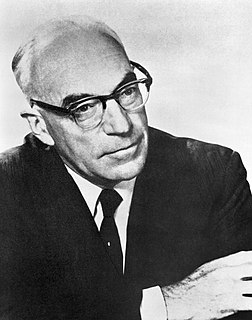Ein Zitat von Maryrose Wood
Pflanzen machen die Luft! Verstehen Sie, was das bedeutet? Unsere Nahrung, unsere Luft, unser Leben stammen aus den Pflanzen. Wie könnten sie nicht göttlichen Ursprungs und göttlicher Intelligenz sein? Wie können wir leugnen, dass sie im Wesentlichen nicht geringer sind als Sie oder ich?
Verwandte Zitate
Heute stammen etwa 40 Prozent der Kohlenstoffverschmutzung Amerikas aus unseren Kraftwerken. Es gibt keine bundesstaatlichen Grenzwerte für die Menge, die diese Pflanzen in die Luft pumpen können. Keiner. Wir begrenzen die Menge giftiger Chemikalien wie Quecksilber, Schwefel und Arsen in unserer Luft und unserem Wasser, aber Kraftwerke können so viel Kohlenstoff in unsere Atmosphäre abgeben, wie sie wollen. Es ist nicht klug, es ist nicht richtig, es ist nicht sicher und ich habe beschlossen, dass es aufhören muss.
Freundlichkeit ist mehr als alles andere eine Lebenseinstellung. Es ist eine Art zu leben und durch das Leben zu gehen. Es ist eine Art, mit allem umzugehen, was ist – mit uns selbst, unserem Körper, unseren Träumen und Zielen, unseren Nachbarn, unseren Konkurrenten, unseren Feinden, unserer Luft, unserer Erde, unseren Tieren, unserem Raum, unserer Zeit und unserem Bewusstsein . Behandeln wir die gesamte Schöpfung mit Freundlichkeit? Ist nicht die ganze Schöpfung heilig und göttlich?
Ursprünglich schwebten die Kohlenstoffatome, aus denen wir bestehen, in der Luft und waren Teil eines Kohlendioxidmoleküls. Die einzige Möglichkeit, diese Kohlenstoffatome für die lebensnotwendigen Moleküle zu rekrutieren – die Kohlenhydrate, Aminosäuren, Proteine und Lipide – ist die Photosynthese. Mithilfe von Sonnenlicht als Katalysator kombinieren die grünen Zellen von Pflanzen Kohlenstoffatome aus der Luft mit Wasser und Elementen aus dem Boden und bilden so einfache organische Verbindungen, die die Basis jeder Nahrungskette bilden. Es ist mehr als eine Redewendung zu sagen, dass Pflanzen Leben aus dem Nichts erschaffen.
Unsere Überzeugungen sind tief in unserer Erde verwurzelt, egal, was Sie ihr angetan haben und wie viel davon Sie zugepflastert haben. Und wenn Sie den ganzen Beton ein oder zwei Jahre lang unbeaufsichtigt lassen, werden unsere Pflanzen, die einheimischen indianischen Pflanzen, diesen Beton durchdringen und durch ihn hindurch dringen.
Jeder Mensch muss sich wichtig fühlen. Wir wollen, dass unser Leben zählt. Wir sehnen uns danach zu glauben, dass wir in irgendeiner Weise wichtig sind und dass der Hunger nach Bedeutung – ein Antrieb, der so intensiv ist wie unser Bedürfnis nach Sauerstoff – nicht aus Stolz oder Ego entspringt. Es kommt von Gott, weil er möchte, dass jeder von uns versteht, wie wichtig wir sind. ... Wir müssen nach unseren Wurzeln, unserem Ursprung und unserem Schicksal suchen, damit wir unseren gegenwärtigen Wert erkennen können. ..... ...Wir können einander dabei helfen, zu erkennen, dass wir bedeutende Personen sind, die nach dem Bild Gottes geschaffen wurden.
Der einfachste Weg, Kohlendioxid, das wichtigste Treibhausgas, zu entfernen, besteht darin, Pflanzen zu züchten – vorzugsweise Bäume, da diese einen größeren Teil des Gases in Zellulose binden, was bedeutet, dass es nicht innerhalb von ein oder zwei Saisons in die Luft zurückkehrt. Pflanzen bauen sich aus Luft und Wasser auf und beziehen nur einen winzigen Bruchteil ihrer Masse aus dem Boden.
Wissenschaft und Religion sind sich sehr ähnlich. Beides sind fantasievolle und kreative Aspekte des menschlichen Geistes. Der Anschein eines Konflikts ist das Ergebnis von Unwissenheit. Wir entstehen durch einen göttlichen Akt. Diese göttliche Führung zieht sich durch unser ganzes Leben; Bei unserem Tod geht das Gehirn verloren, aber diese göttliche Führung und Liebe bleibt bestehen. Jeder von uns ist ein einzigartiges, bewusstes Wesen, eine göttliche Schöpfung. Es ist die religiöse Sichtweise. Es ist die einzige Ansicht, die mit allen Beweisen übereinstimmt.
Ich bin ein Mann, und Männer sind Tiere, die Geschichten erzählen. Dies ist ein Geschenk Gottes, der unsere Spezies ins Leben gerufen hat, aber das Ende unserer Geschichte unerzählt ließ. Dieses Geheimnis beunruhigt uns. Wie könnte es anders sein? Ohne den letzten Teil, denken wir, wie sollen wir all das, was davor war, verstehen: nämlich unser Leben? Also erfinden wir unsere eigenen Geschichten, in fieberhafter und neidischer Nachahmung unseres Schöpfers, in der Hoffnung, dass wir durch Zufall erzählen, was Gott unerzählt gelassen hat. Und am Ende unserer Geschichte verstehen wir, warum wir geboren wurden.
In der Industrie konzentrieren wir uns jetzt nach besten Kräften darauf, die Anlagen mit maximaler Kapazität arbeiten zu lassen, und versuchen, die Ausrüstung zu ersetzen, die sich in einem schlechten Zustand befindet, weil es an Ersatzteilen aus den USA mangelt, die wir aus den USA nicht bekommen können; um unsere Branche später auf der Grundlage unserer Primärressourcen zu erweitern. Und um unsere Abhängigkeit von externen Märkten zu verringern und unsere Bemühungen im Jahr 1965 dem Aspekt der Sicherheit und Hygiene am Arbeitsplatz zu widmen, um unsere Werke für den Arbeiter besser zu machen: damit sich der Arbeiter dort wirklich wie ein Mann fühlen kann.
Wie lassen wir Gott in unseren Geist, Körper, unsere Beziehungen und unser Leben ein? Wir hören auf, das Göttliche durch unsere vorgefassten Vorstellungen darüber, was heilig und was profan ist, zu verdrängen. Wenn wir die Denkweise annehmen, dass alles letztendlich göttlich ist, wenn auch manchmal mehr getarnt als andere, dann können wir erkennen, dass alle unsere Gedanken, Impulse und Wünsche aus dem Heiligen entstehen und uns wieder zu dessen Bewusstsein bringen können.
O sancta simplicitas! Von welcher seltsamen Vereinfachung und Verfälschung lebt die Menschheit! Man kann nie aufhören zu staunen, wenn man erst einmal Augen für dieses Wunder gewonnen hat! Wie wir alles um uns herum hell und frei und leicht und einfach gemacht haben! Wie haben wir es verstanden, unseren Sinnen einen Pass zu allem Oberflächlichen, unseren Gedanken eine göttliche Lust auf mutwilliges Glücksspiel und falsche Schlussfolgerungen zu verleihen! - wie wir es von Anfang an verstanden haben, unsere Unwissenheit zu bewahren, um eine fast unvorstellbare Freiheit, Frivolität, Ungestümheit, Tapferkeit, Lebensfreude zu genießen, um das Leben zu genießen!
Die Schriften, die ich im Kopf habe und denen ich mich manchmal hingebe, befassen sich nicht mit Pflanzen, Bergen oder Vögeln als Gegenstände wissenschaftlicher Beschreibung, sondern mit Naturerlebnissen, die unsere Stimmungen und Gefühle beeinflussen, unsere Vorstellungskraft und Träume bereichern und unsere Sinne formen davon, wie wir im Verhältnis zur Umwelt stehen. Im weitesten Sinne des Wortes ist diese Art des Schreibens eine Übung in der Phänomenologie, ein Versuch, die Bedeutung darzustellen, die Vögel, Pflanzen oder was auch immer für uns haben.



































